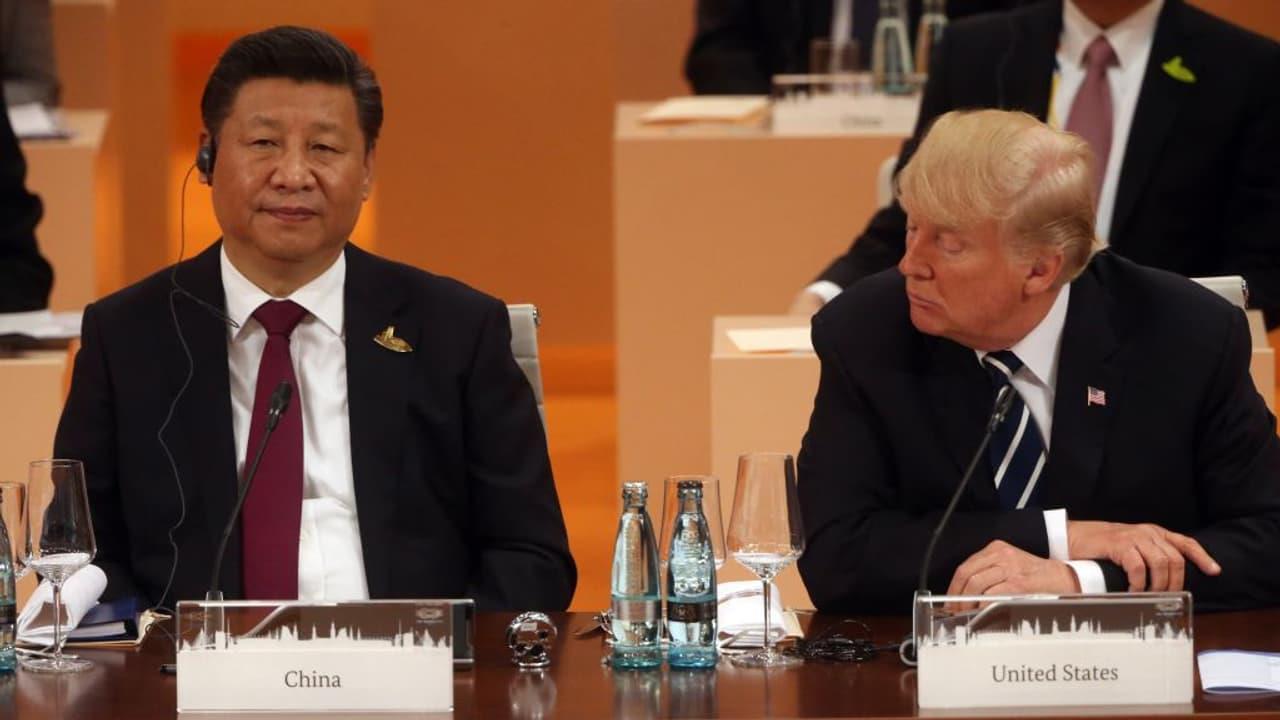Why US Foreign Policy Turmoil Is Accelerating China's Rise, Reshaping Global Balance Of Power
The United States, once the undisputed global superpower, is now confronting a rival unlike any in its modern history. China's rapid ascent in economic, military, and technological domains has positioned it as a formidable challenger, while U.S. foreign policy under Trump 2.0 has left allies uncertain and adversaries emboldened. The result is a restructuring of the world order that increasingly appears to benefit Beijing.
For decades, the U.S. outproduced and out‐innovated competitors such as pre‐war Japan, Germany, and the Soviet Union. After the Soviet collapse in 1991, the world entered a“unipolar” era dominated by Washington. That dominance is now eroding.
China's Expanding Economic and Military Edge
According to IMF projections for 2025, China's Purchasing Power Parity (PPP) is already 1.33 times that of the U.S., even though America's nominal GDP remains higher. More importantly, China's growth rate continues to outpace the U.S.
Manufacturing figures underline this shift. In 2024, China accounted for 27.7 percent of global output, compared to America's 17.3 percent. The U.S. Federal Reserve acknowledges that China has become the world's manufacturing powerhouse. Its trade volume surpasses that of the U.S., it holds the largest trade surplus, and it is the top trading partner for more than 100 countries.
Military comparisons are equally striking. The U.S. Department of Defense reports that China's navy is now the largest in the world, with over 370 platforms, including aircraft carriers, mine warfare vessels, and auxiliaries. Its air force and drone capabilities are increasingly comparable to those of the U.S. Air Force.
In technology, China leads in 37 of 44 critical areas, holding monopolies in several. Its strategic partnership with Russia, combined with growing influence in forums like BRICS, is seen in Washington as a direct challenge to U.S. primacy.
The U.S. response is fractured. One camp, led by Donald Trump, Vice President J.D. Vance, and the MAGA Republican base, argues that America is overstretched militarily and should reduce its commitments abroad. They emphasize burden‐sharing in Ukraine and advocate a more isolationist posture.
The opposing faction, rooted in neoconservative circles, calls for reinforcing NATO, expanding alliances in the Indo‐Pacific, sustaining support for Ukraine, and applying economic pressure on states that resist U.S. strategic goals. Figures such as Marco Rubio and Elbridge Colby, along with think tanks like the Heritage Foundation, CSIS, RAND Corporation, and the Atlantic Council, push for containment of China and resistance to multipolar forums.
Trump, however, appears to oscillate between these approaches. He has imposed tariffs on over a hundred countries, prompting many to diversify trade ties away from Washington. At the same time, he has demanded higher defense spending from NATO allies, while simultaneously engaging in direct talks with Russian President Vladimir Putin.
Contradictions in the Middle East and Beyond
Despite rhetoric about reducing foreign adventures, U.S. actions in West Asia suggest otherwise. Washington has backed Israel's military campaigns, bombed Iranian nuclear facilities, and supported strikes in Doha, Qatar, which is home to a major U.S. airbase. These moves expose allies to the volatility of U.S. policy and raise questions about its long‐term reliability.
Meanwhile, Donald Trump has negotiated deals requiring Japan, South Korea, and EU nations to make heavy investments in the U.S. South Korea is set to rebuild America's shipping industry, while European states are committing to U.S. gas purchases and industrial projects. Critics describe this as a modernized form of U.S. imperialism, extracting surplus from allies in exchange for protection.
Yet, unlike in the unipolar era, these allies now have alternatives. China and the BRICS bloc are promoting a multipolar framework based on trade without coercion or embargoes. This emerging system offers countries a way to hedge against Washington's unpredictability.
Legal Disclaimer:
MENAFN provides the
information “as is” without warranty of any kind. We do not accept
any responsibility or liability for the accuracy, content, images,
videos, licenses, completeness, legality, or reliability of the information
contained in this article. If you have any complaints or copyright
issues related to this article, kindly contact the provider above.
Most popular stories
Market Research

- Ozak AI Partners With Pyth Network To Deliver Real-Time Market Data Across 100+ Blockchains
- Blockchainfx Raises $7.24M In Presale As First Multi-Asset Super App Connecting Crypto, Stocks, And Forex Goes Live In Beta
- B2PRIME Secures DFSA Licence To Operate From The DIFC, Setting A New Institutional Benchmark For MENA & Gulf Region
- BTCC Summer Festival 2025 Unites Japan's Web3 Community
- From Zero To Crypto Hero In 25 Minutes: Changelly Introduces A Free Gamified Crash Course
- BILLY 'The Mascot Of BASE' Is Now Trading Live On BASE Chain






















Comments
No comment